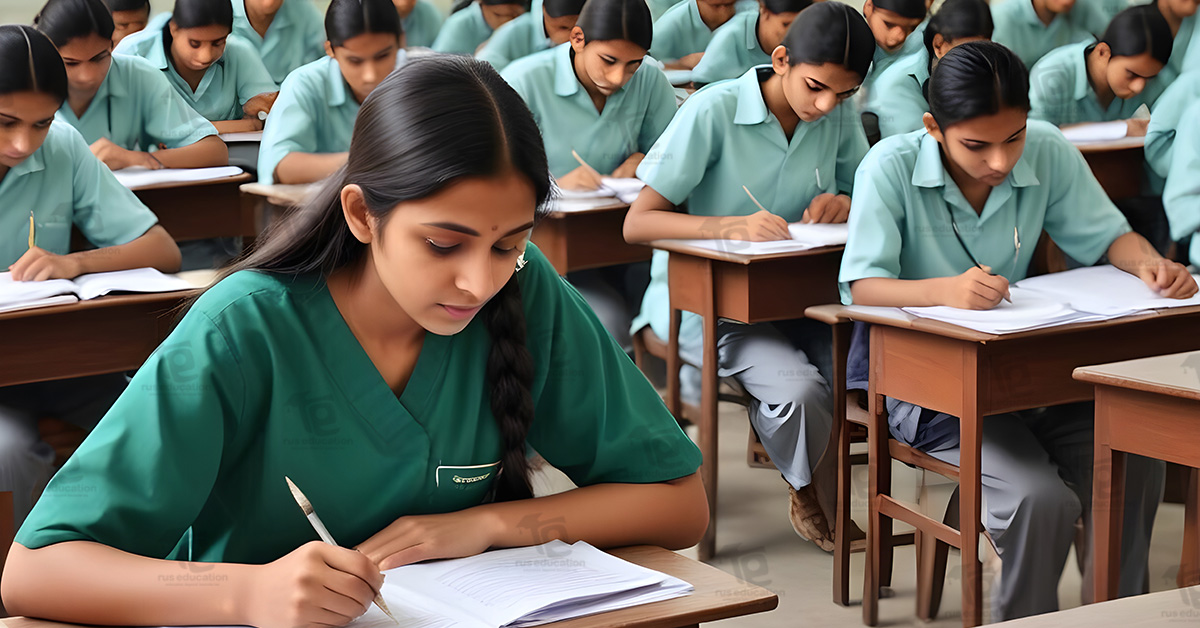The National Eligibility cum Entrance Test (NEET) is a mandatory entrance examination for all medical aspirants seeking to pursue a career in medicine. NEET serves as a gateway for Indian students. It streamlines the admission process, ensuring uniformity and high standards of medical education across the nation.
The growing demand for medical education and the limited seats available in India are driving many Indian students to pursue their studies abroad. Today, Medical colleges in India offer approximately 1,06, 333 medical seats across the country with Government colleges accounting for about 55,648 seats, and private MBBS colleges contributing 50,685 seats. Considering the option to pursue medical education abroad is preferable for Indian students as private colleges charge an insurmountable amount of tuition fees.
In recent years, the number of registrations for NEET has risen by a significant number which underscores the importance of the exam for all medical aspirants. In 2024, the total number of registrations was approximately 2.4 million students. The increasing number of applicants further revealed the intense competition of the examination.
NEET was initially conducted by the Central Board of Secondary Education (CBSE), the administration of NEET was transferred to the NTA in 2019 to ensure transparency and internationally standardized entrance tests. The exam was introduced to improve the standards of medical education and practice in India. Despite encountering all the challenges, the NTA has diligently worked to uphold the integrity of the examination process. The consistency of maintaining a standardized examination process is essential for upholding a rigorous standard of education to produce skilled medical professionals capable of addressing global healthcare professionals.
Necessary Reforms
Here are a few of the essential reforms needed to improve the quality and functionality of NEET examinations.
Digital Examination Infrastructure: Shifting from traditional pen-and-paper tests to computer-based exams with multiple shifts and unique question sets can minimize potential loopholes during the examination.
Biometric Verification: Using Aadhaar-linked biometrics and facial recognition can prevent impersonation, ensuring only legitimate candidates participate in the exam.
Transparency in Question Paper Setting: To prevent question paper leaks, it is essential to involve a diverse panel, and multiple security layers that can enhance the exam’s integrity.
Advanced Proctoring Tools: Implementation of tools like facial recognition, eye movement tracking, and keystroke analysis can reduce cheating instances.
Examination Center Audits: Conducting random audits at the exam centers can ensure compliance with anti-cheating protocols and identify vulnerabilities to potential malpractices.
Ethical Hacking: Employing ethical hackers to test infrastructure can pre-empt security breaches and enhance the overall security of the exam.
Stringent Anti-Cheating Laws: Enforcing strict anti-cheating laws, similar to international examples, can deter malpractice during the examination.
Periodic Review of Examination Protocols: Regular updates of the exam protocols and address emerging challenges, maintaining the credibility of the exam.
Enhanced Training for Invigilators: To maintain a fair examination environment, it is important to provide comprehensive training that can help invigilators during the exam to detect and handle cheating effectively.
Public Awareness Campaigns: Educating students and parents on the consequences of cheating fosters a culture of integrity.
Implementing the necessary recommended NEET reforms can ensure the reliability of the exam. Thus, ensuring the highest standard of exam integrity that can help produce competent medical professionals who can significantly contribute to the healthcare industry.




